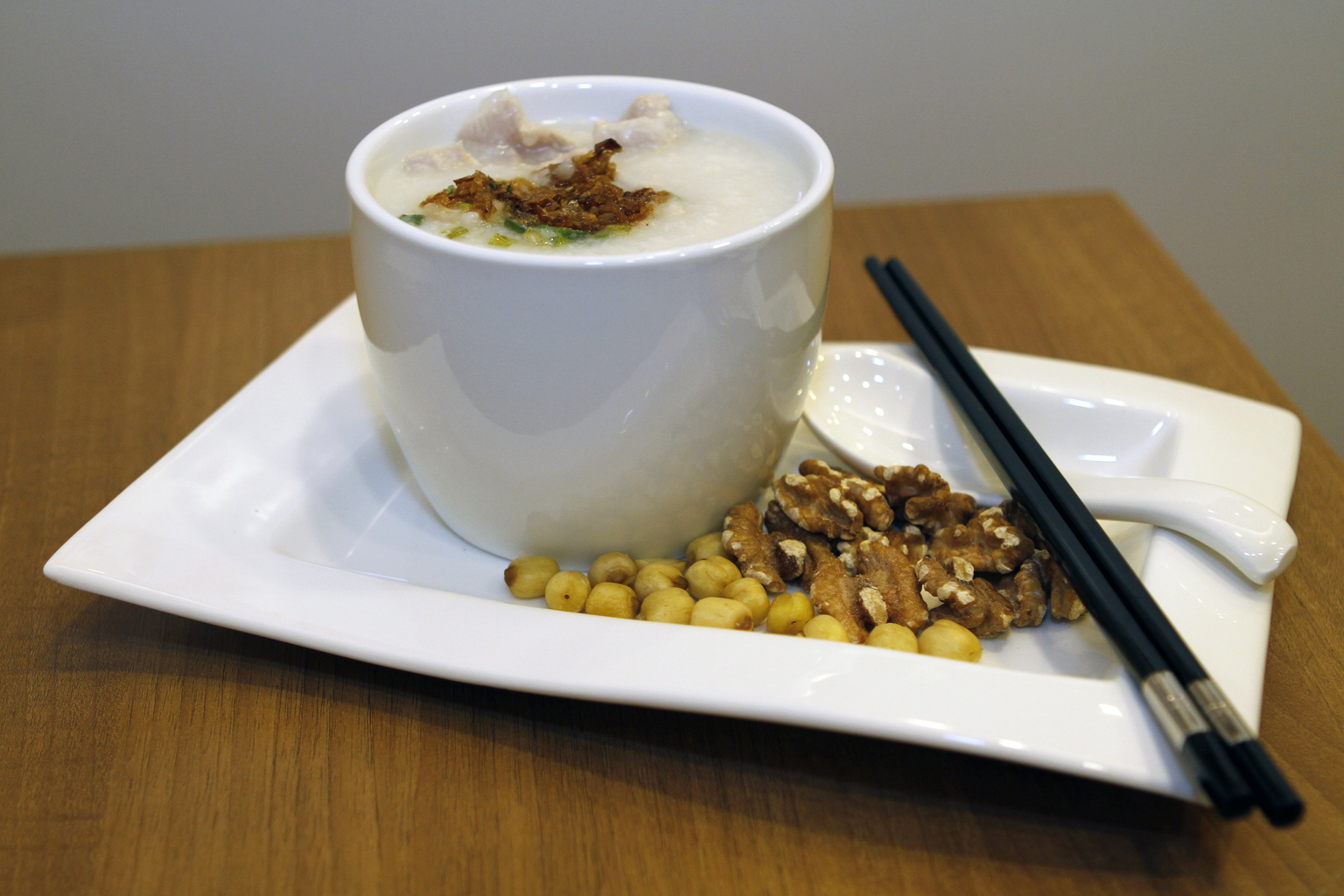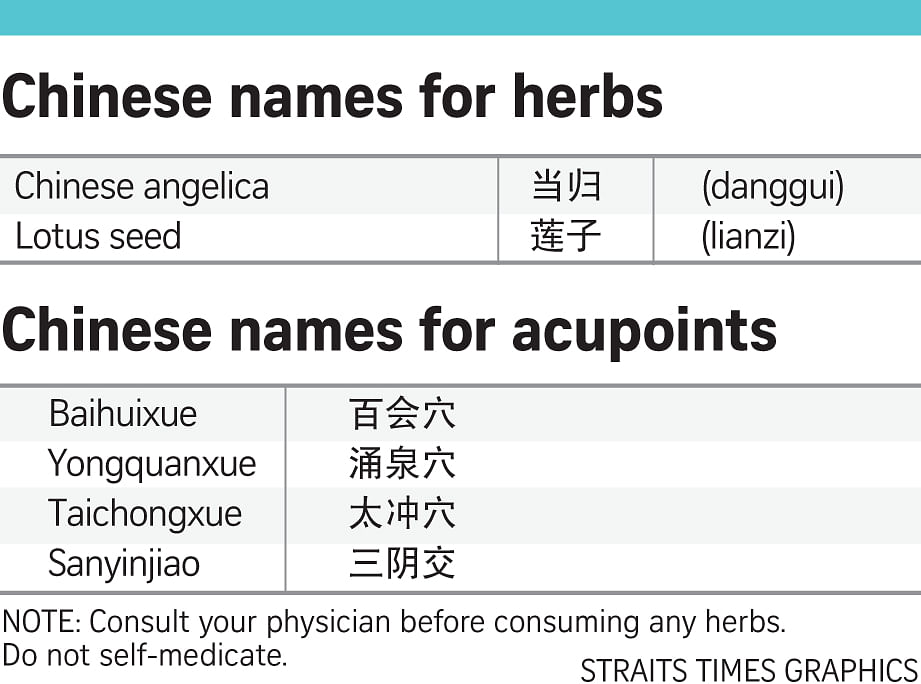Herbal Help
When menopause sets in and what to expect
TCM offers tips in understanding, dealing with symptoms, which can differ from woman to woman
Sign up now: Get ST's newsletters delivered to your inbox

Prepare pork porridge with walnut and lotus seeds as food therapy for kidney yin and yang deficiencies.
ST PHOTO: TAMARA CRAIU
Joan Chew
Follow topic:
A sign of ageing for a woman is the onset of menopause.
This is a phase in her life when she experiences menstrual irregularity, which signals the eventual end of her reproductive ability, said Ms Gee Swee Sien, a traditional Chinese medicine (TCM) physician at Thomson Chinese Medicine (I12 Katong).
She may also experience hot flushes and profuse sweating on the upper part of her body, or be emotionally unstable, Ms Gee added.
Other common symptoms of menopause include heart palpitations, insomnia, vertigo, tinnitus (ringing in the ears), lethargy and lower-back aches.
When men reach andropause, the male equivalent of menopause, their symptoms are less noticeable than women's.

The men may experience constant fatigue, sleepiness, low self-esteem, forgetfulness and anxiety for no apparent reason. But these could also arise from other factors, Ms Gee said.
The severity of menopausal symptoms differ from woman to woman, and some may be lucky enough to be spared most of them.
A chapter in The Inner Classic Of The Yellow Emperor (Huangdi Neijing) states the growth and reproductive ages of men and women.
Ms Gee explained: "A man's ability to reproduce starts at the age of 16 and ends around 64.
"For a woman, she is fertile at the age of 14 and is considered infertile by the age of 49."
Women undergo menopause from their early 40s up to their 50s.
In TCM, menopause is caused by a decline in the functioning of the kidneys, which govern growth and the ability to reproduce.
Ms Gee emphasised that this is a "natural process" of ageing and does not imply kidney failure.
What this refers to, instead, is the balance of yin and yang in the kidneys.
In TCM, kidney yin is responsible for moistening and nourishing the whole body, while yang refers to the element responsible for "warmness" in the kidneys.
Menopausal women are either deficient in yin, yang, or both, she said.
Here are three syndromes underlying women's menopausal issues:
KIDNEY YIN DEFICIENCY
Causes: Prolonged illnesses, an inherently weak body constitution, an overactive sex life, an excessive consumption of food that is "warm" and "dry" in nature- such as pepper, chilli, cinnamon, garlic, clove, mutton, venison, leek and walnut.
Symptoms: A shorter menstrual cycle, a noticeable increase or decrease in menstrual volume and menstrual blood that tends to be bright red.
The woman may have hot flushes, profuse sweating, vertigo, tinnitus, be constantly thirsty, have dry skin, a red tongue and a thin, feeble pulse.
Food therapy: Brew five pieces of sea cucumber, 100g of white rice grains and 500ml of hot water for up to 1½ hours to make sea cucumber porridge. Season with salt to taste.
KIDNEY YANG DEFICIENCY
Causes: Ageing, inherent body constitution, prolonged illnesses and an overactive sex life.
Symptoms: During menses, there may be a sudden gush of menstrual flow which is dark red.
The woman may experience coldness in the hands and feet, frequent urination - especially at night - lethargy, oedema or swelling in the lower limbs, a pale tongue and a weak and thready pulse.
Food therapy: Brew 30g of Chinese angelica, 250g of mutton and 10g of ginger under medium heat until the mutton has softened. Season the Chinese angelica and mutton soup with salt before serving.
KIDNEY YIN & YANG DEFICIENCIES
Causes: Inherently weak yin and yang since birth; weakness in yin causes yang to weaken over time and vice versa.
Symptoms: The amount of menstrual flow is unpredictable.
At times, the woman may experience a sudden gush of heavy menstrual flow, while at other times, she may experience prolonged spotting.
She may alternate between feeling warm and cold within a short span of time. She may have hot flushes, profuse sweating, lower back aches and a pale tongue with a very weak pulse.
Food therapy: Prepare porridge by first boiling 250g of pork, 50g of walnuts and 50g of lotus seeds for up to 30 minutes, then add in 100g of white rice grains and simmer for another 30 minutes.

